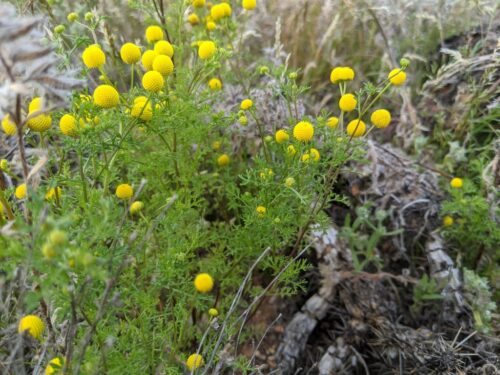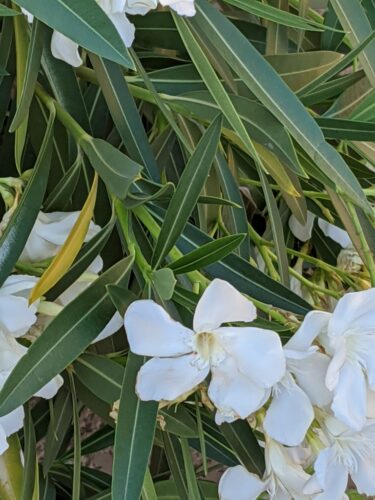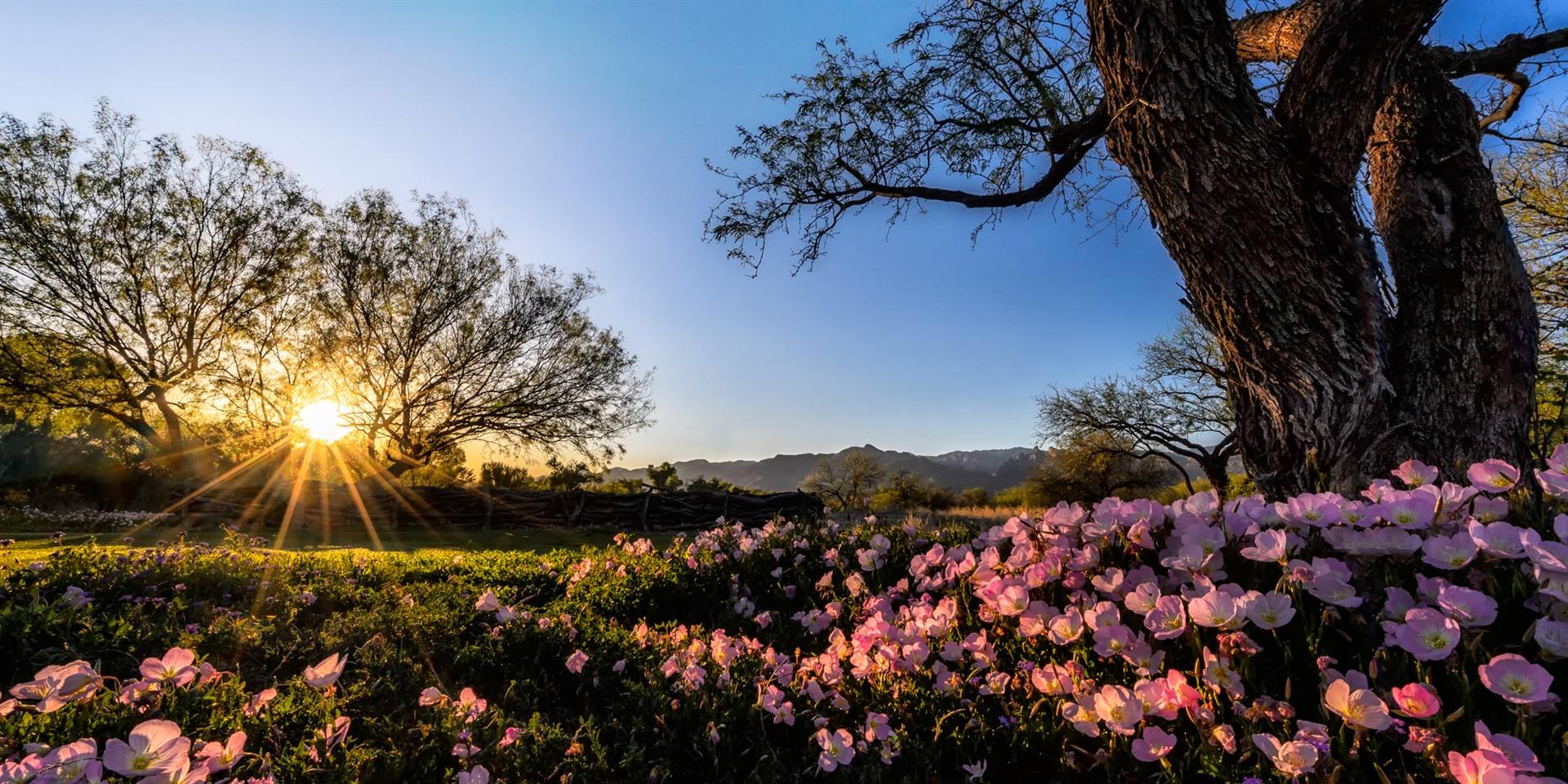Invasive & Toxic Plants
Posted Feb 01, 2021
The theme of the Winter 2020 issue of The Plant Press is invasive and toxic plants in Arizona. At our Chapter meeting in January, we had an engaging discussion about the articles and our experiences with invasive and toxic plants.
It was no surprise that most of us have experienced issues with stinknet (Oncosiphon pilulifer/piluliferum). To try to control stinknet on your property, our recommendation is to continually be on the lookout for it during the winter/spring season and take immediate action when you find seedlings. The top methods methods we’ve used to try to control stinknet and other invasives are:
- manual removal;
- hoeing or raking;
- chemical herbicides;
- applying a layer of mulch, landscape fabric, or cardboard; and
- natural herbicides, such agricultural grade vinegar.

Stinknet plants flowering. Photo credit: Lisa Rivera
Oleander (Nerium oleander) is a toxic plant that has been problematic for some of us. We also felt more could be done to inform the public about which landscaping plants and weeds are toxic to humans and animals. Therefore, our Chapter plans to provide more information about toxic plants in the future.

Oleander is a common ornamental plant. Beware, it is poisonous to humans and animals. Photo credit: Lisa Rivera
If you couldn’t attend our meeting, you can still learn about Arizona’s invasive and toxic plants by reading the this issue of The Plant Press, particularly pages 1-24 and 27-31. The publication is freely available to everyone.
Also, if you need help identifying the most prolific invasive species in our area, Desert Defenders has a useful invasive plant fact sheet.

